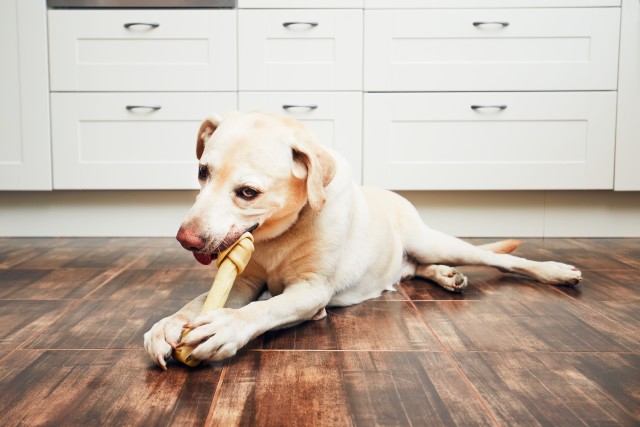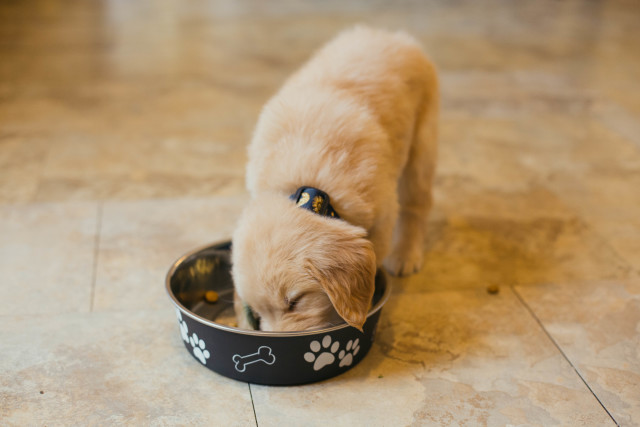The Surprising Truth About How Early Puppies Start Learning
Here’s something that not many puppy owners know and it may take you a little by surprise. A puppy that is no more than 56 days old has potentially the same learning capacity as that of a fully mature, adult dog.
I’ll say it again.
An eight week old pup has as much ability to learn than any adult dog of any age.
Surprised?
You wouldn’t be if you knew how a dog’s learning curve is formed. From the minute they are born, dogs are learning by association.
How quickly do puppies start learning?
Puppies learn habits from their mother in the nest. They learn how to get milk when they want it.

When their eyes open, they learn why they should get out of mum’s way if she is about to tread on them.
They learn why squeaking for attention is often very productive and they learn where the warmest places are to sleep.
Every second of every minute of every day puppies are learning. These are learning characteristics that the pup will carry forever.
Puppy learning process
Learning by association starts from birth and the habit never dies. Old dogs can always learn new tricks and a new puppy will be learning from the very minute he or she is brought into a new home.
Dog training and lessons in behaviour begin when the dog is 6 to 9 months in age, correct? So, as soon as Rover hits his 6 month birthday he is ready to start his worldly education program, yes?
Not likely!
Different breeds learn at different speeds
In fact, with some breeds if you were to begin the training process at 6 months old you will be too late and serious behavioural problems could already have been formed.

Simple commands such as sit, stay, down and come can be taught from a very early age in a fun way.
Puppies attention spans are often very low and this means that training sessions will last no more than 2 to three minutes at most but, if there is a prospect of a treat at the end of it, you’d be surprised at just what pup will be prepared to do to get at it.
The best approach to get puppies to learn
Teaching one command at a time, you can successfully have an 8 to 16 week old puppy sitting with a simple hand single and coming to you immediately when their name is called.

This kind of early training will lay some excellent psychological foundations for later life. Your dog will be 100% used to being asked to do things before being rewarded instead of being rewarded simply for looking adorable.
You will have imprinted, in a friendly way, that you are pack leader, what you say goes in this puppy’s life.
Early canine behavioural problems are sometimes hard to spot and in many cases they are actually induced by owners at a tender age in the dog’s life.
What is considered acceptable for an 8 week old, fluffy bundle of joy suddenly becomes crime of the century when carried out by an 8 month old, semi-adult dog.
Your dog will not understand this and may react by simply ignoring anything you tell him. He was allowed to nip your fingers when he was little, he was allowed to eat, chew or pretty much destroy anything he fancied when he was little so why can’t he do it now?
Deciding what is acceptable doggy behaviour at home from day one is a fair way to let puppy in on the ‘house rules’.
Dogs understand many things but grey areas are not one of them. I either can do this or I can’t, that is what he will think, not; ‘I can do this on Tuesday’s but on Sunday morning when visitors are around, I simply mustn’t show the family up by dragging a pair of underpants into the living room that I found in an upstairs bedroom’.
Young pups can sometimes think very highly of themselves and their right to do pretty much anything their little heart desires.
This is very often the case with puppies that were top of the pile in their particular litter and have up to now, gotten everything they wanted in life by simply taking it. In these instances, you need to play the role of mummy dog.
When pup got feisty with mummy dog in the nest, she didn’t take much time in putting him straight.
We can learn a lot from how dog mothers teach their naughty offspring.
If a puppy is annoying mum, she will very rarely get physical or aggressive in order to teach the youngster to stop doing something she doesn’t like.
Instead, she’ll most often walk off. Escape. Move away and interrupt the puppy’s behaviour by simply delivering one of the most effective teaching methods that all dogs understand: ignoring.
Dogs, particularly puppies, don’t like to be ignored. They crave stimulation.
If your puppy starts to get a little out of hand, take a lesson from a mother dog. Walk away. Ignore. Stop providing the puppy with the reward of attention.
Obviously if the pup is up to something that could be considered dangerous, intervention is needed. But in general? If you want a puppy to quickly learn that a particular behaviour isn’t rewarding, the way to do it is to walk away.
Remember, your puppy is learning every moment of their early lives. Let them be puppies, yes. But also acknowledge that teaching is something that can be done from their earliest, most formative weeks and months of life.

